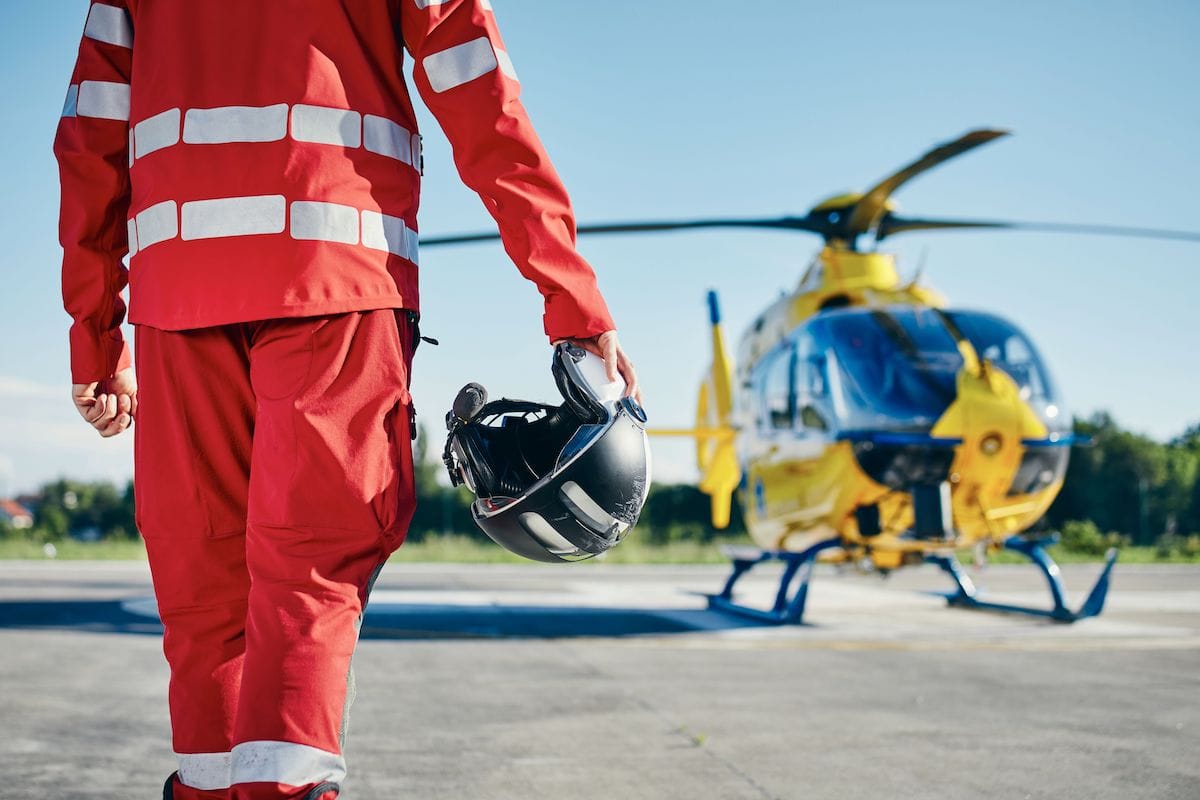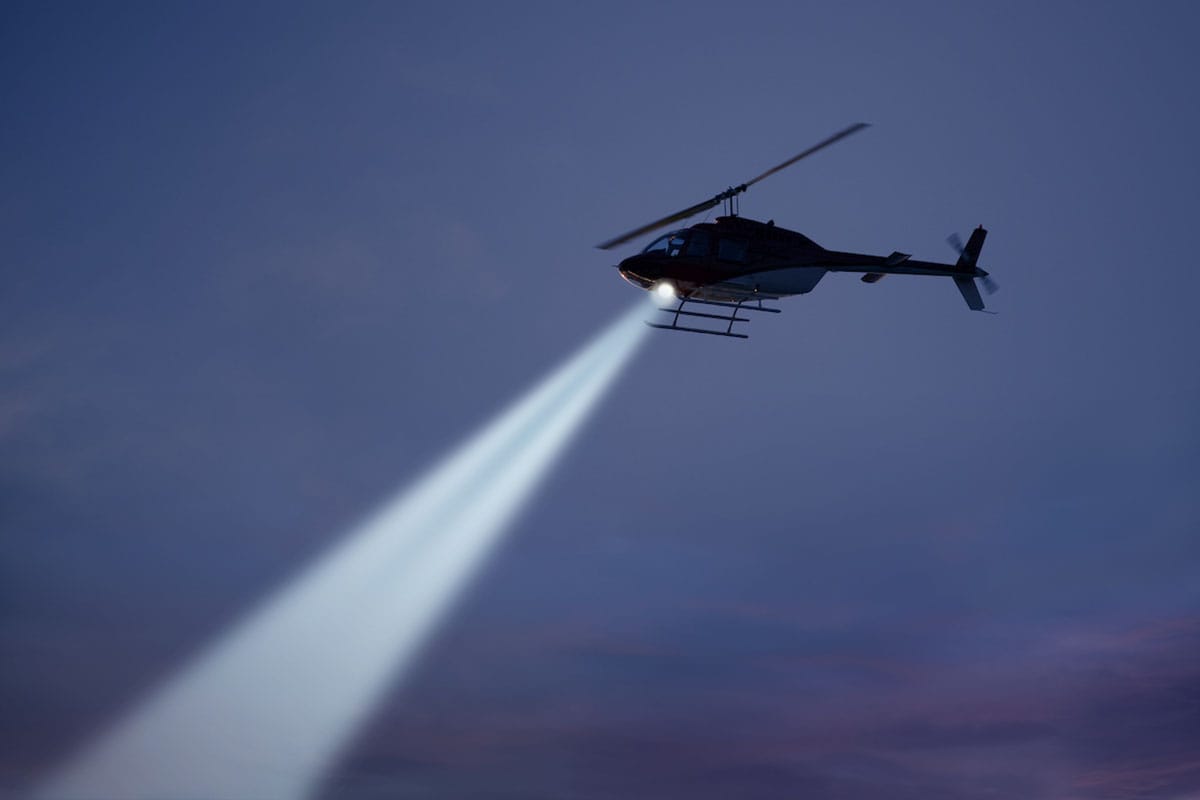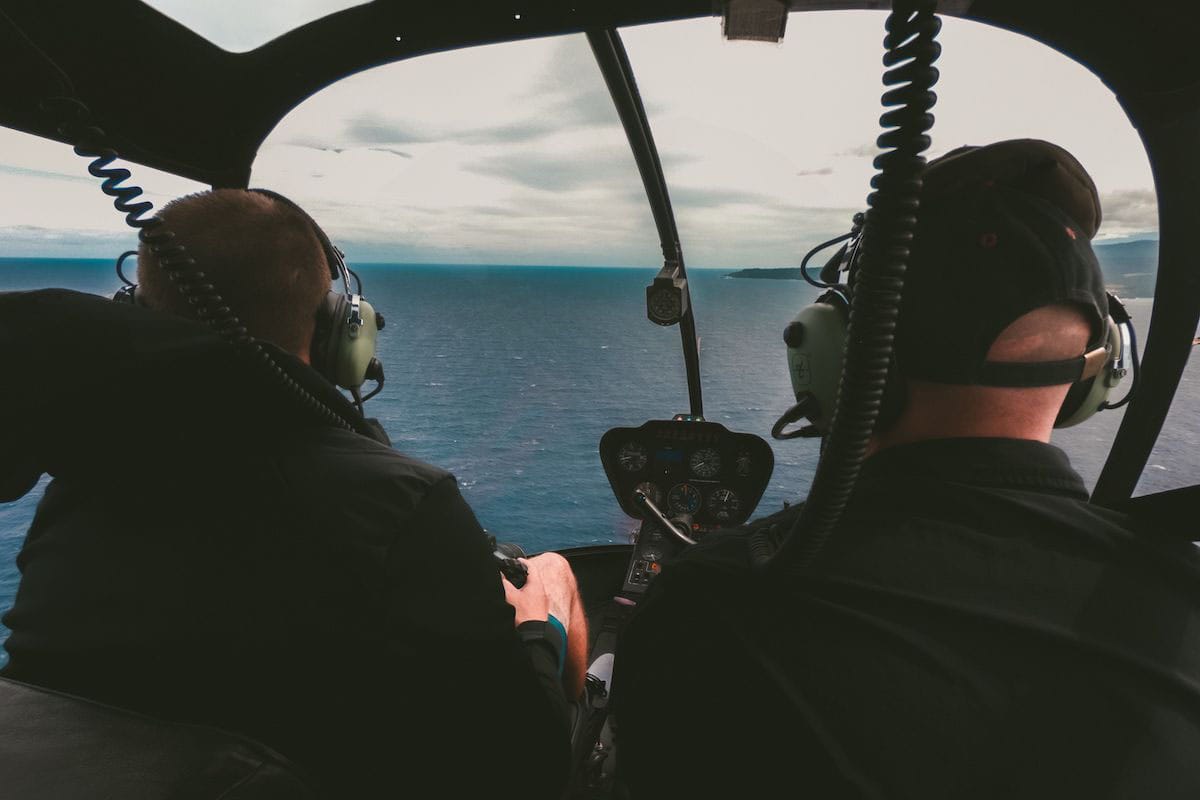Associate Of Science In Aviation Studies - Helicopter
Helicopter Flight School: The Fast-Track Degree
In Helicopter Training
Our accelerated aviation degree program is designed for those seeking a career as a helicopter pilot. Fast-paced, structured, and conveniently located in greater Phoenix, students can earn four certificates and ratings and graduate in about two years. All instruction is provided by CAU instructors on CAU aircraft.
Designed for aspiring aviators who wish to be gainfully employed as a pilot, California Aeronautical University’s Associate of Science in Aviation Studies - Rotorcraft-Helicopter provides students with the knowledge and skills to start a helicopter pilot career.
Along with earning an aviation degree, students also earn four certificates and ratings in the program's helicopter pilot training emphasis, including:
- private pilot - helicopter
- instrument rated pilot - helicopter
- commercial pilot - helicopter
- certified flight instructor - helicopter
As a student in the professional helicopter pilot associate’s degree program at CAU, students will become proficient in the areas of federal regulations, weather, aerodynamics, crew resource management principles, and various aviation topics including modern aircraft technology. With a focus on safe operations, students will also develop a thorough understanding and dedication to promoting and practicing aviation safety.
The University offers federal financial aid to those who qualify and accepts veteran educational benefits for eligible students.
Meet with the CAU Admissions Team today to learn more about admissions requirements, how to pay for school, and program-specific details.
Rotorcraft Emphasis Program Highlights
Fly In The First Term
Students begin logging flight hours in their first term of school. Instruction is provided on a fleet of Robinson aircraft, one of the world’s leading training helicopters.
Accelerated Program
Since classes are offered year-round in a highly structured format, students can earn their degree and four certificates and ratings in about two years.
University Strength, Local Convenience
All flight instruction and courses are delivered by CAU with no courses or flight instruction contracted to a third-party partner. All students are also eligible for graduate services and can benefit from the University's strong industry partnerships.
Financial Aid & GI Bill®
As an accredited institution and helicopter pilot school, CAU offers access to federal financial aid and tuition reduction programs to those who qualify. CAU also accepts veteran education benefits for eligible students.
This program is for you if...
- You're looking to make a career out of flying
- You want to earn a college degree
This program is NOT for you if...
- You want to fly helicopters as a hobby
- You want to obtain only a flight certificate
ASAS Degree Course List | Helicopter Training Emphasis
- Introduction to Rotorcraft
- Aviation Concepts
- Rotorcraft Private Pilot
- Rotorcraft Commercial Pilot Flight
- Rotorcraft Certified Flight Instructor
- Cockpit Information Resources
- Advanced Aviation Weather
- High Performance Aerodynamics
- General Education Courses
- And much more. See catalog for full course list here.
Helicopter Pilot Training Emphasis
Additional Program Highlights
This course will enhance, at a deeper level, the understanding and theoretical knowledge necessary to successfully complete the student’s private helicopter pilot training. This is the first step in the rotorcraft degree program at CAU. Throughout the degree, students will earn up to four certificates and ratings.
A detailed examination of the terminology and practical application of aviation weather, aviation law and regulations as it applies to 14 CFR 61.65, aviation safety, human factors, as well as a more in depth understanding of helicopter aerodynamics, performance and systems will be covered.
These courses allow the student to develop basic aeronautical skills necessary to solo a helicopter, including an introduction to auto-rotations, pinnacle and confined area approaches and landings.
This instruction ensures that the student is able to analyze, evaluate, and perform helicopter weight and balance, performance and system operations; interpret instruments and system indications; exercise Aeronautical Decision Making (ADM); communicate with Air Traffic Control (ATC); and execute procedures and use check-lists accurately. Students will be introduced to, and become proficient in planning cross-country flights and navigating in the National Airspace (NAS). Emphasis will be placed on emergency procedures; Crew Resource Management (CRM); human factors; and helicopter limitations. At the end of these three courses, all helicopter maneuvers will be performed to published applicable Practical Test Standards.
These courses provide the student the foundation for accurate control of the helicopter during operations in Instrument Meteorology Conditions (IMC) via use of flight instruments. The student will gain knowledge of the applicable Federal Aviation Regulations/Aeronautical Information Manual (FAR/AIM), and apply these regulations and implementations to flight in IMC.
This course develops the student’s ability to fly and put into practice IFR clearances and holding patterns, terminal procedures, and both precision and non-precision instrument approaches. In addition, the student will be expected to fully understand and demonstrate the use of the Instrument Landing System (ILS) as well as be able to explain the effects of weather and human factors on instrument flight. Students develop the ability to practice their knowledge of navigation procedures, holding procedures, terminal area operations, and instrument approaches, both precision and non-precision, and with reference to specific helicopter capabilities. At the end of these three courses, all operations will be conducted to the Instrument Rating Airman Certification Standards. Upon successful completion of the course, the student will have earned the endorsement required under Title 14 CFR 61.65 to be eligible to take the Instrument Rating-Helicopter practical test.
This course focuses on the flight environment to include advanced human factors concepts that may affect the professional pilot, navigation, and aviation weather; problems associated with flight at low altitudes specific to helicopters, advanced application of techniques of off-airport take-off and landing operations.
The student will master the concepts of Aeronautical Decision Making (ADM) processes. This course ensures that students have a thorough understanding of the aeronautical knowledge required to become a certificated commercial pilot. The student will master aerodynamic principles as applied to helicopters, and considerations along with being able to predict aircraft performance by taking into account weather and weight and balance factors. A review of the commercial FARs will be covered.
These courses will expand the scope of helicopter operations, to include the planning and execution of approaches and landings to off-airport locations such as pinnacles, confined areas, and approved heli-pads.
Emergency procedures such as auto-rotations and stuck anti-torque pedals will be practiced and night and cross-country operations will be continued, as will exercise of ADM skills. The student will demonstrate a thorough understanding of the various maneuvers and operations, and the ability to perform them all to the Commercial Rotorcraft-Helicopter Practical Test Standards.
Potential Helicopter Pilot Careers
Helicopter Tour Pilot

Explore incredible scenery giving tours from up above.
EMS Helicopter Pilot

Save lives by transporting patients from accident scenes to hospitals.
Police Helicopter Pilot*

Help keep neighborhoods safe by being the eyes in the sky for police on the ground.
Helicopter Flight Instructor

Share your love of flight with others by teaching them to fly.
*This is not a program to become a police officer.
Now Is The Perfect Time To Apply!
Career-Focused
How important is it for you to attend a university that is focused on you being gainfully employed?
The CAU helicopter program is career-focused and prepares students to meet FAA requirements and be well-prepared for helicopter career opportunities. Upon completion of their helicopter training and required flight hours, graduates can work for tour and charter operators, emergency medical services, agriculture, and a variety of other positions.
CAU helicopter students are prepared for their professional careers not only through their academic and practical lessons, but also through the University’s attendance and uniform requirements so they can be well-prepared for future employer expectations.
Additionally, all students are provided career planning assistance, including job-lead development, interview preparation, and resume building through the Office of Graduate Services.
Financial Aid & GI Bill®
Every student’s situation is unique, so finding the right financial aid plan for aviation school is important. Federal financial aid is available to those who qualify and CAU’s financial services coordinators will help you determine what the best financial plan is for your specific situation.
We are approved by the Arizona State Approving Agency for the training of veterans using veteran education benefits. CAU also proudly participates in the Yellow Ribbon Program, which can offer additional funding towards a flight education.
Since CAU is an institution of higher learning and provides in-house flight training, eligible students may use their veteran educational benefits towards the private pilot certificate.

Location
The helicopter program is offered at the University’s Phoenix campus. Conveniently located at Falcon Field Airport in Mesa, CAU Phoenix offers near-perfect weather year-round ideal for flight training. Without the worry of extreme weather canceling flights, students have the opportunity for more flight lessons which can save time and allows them to reach milestones more quickly.
As a hybrid flight training degree program, students at CAU Phoenix complete academic courses online and receive flight training at Falcon Field.
Learn more about the Phoenix, Arizona flight campus.
GI Bill® is a registered trademark of the U.S. Department of Veterans Affairs (VA). More information about education benefits offered by VA is available at the official U.S. government website at www.benefits.va.gov/gibill.